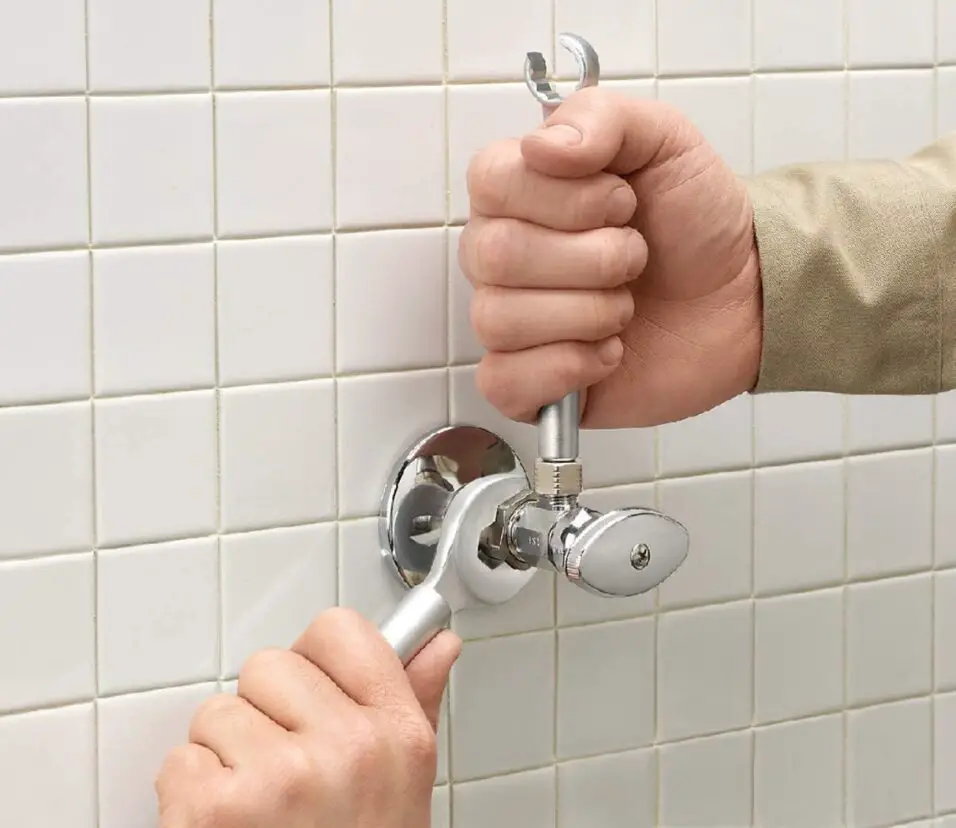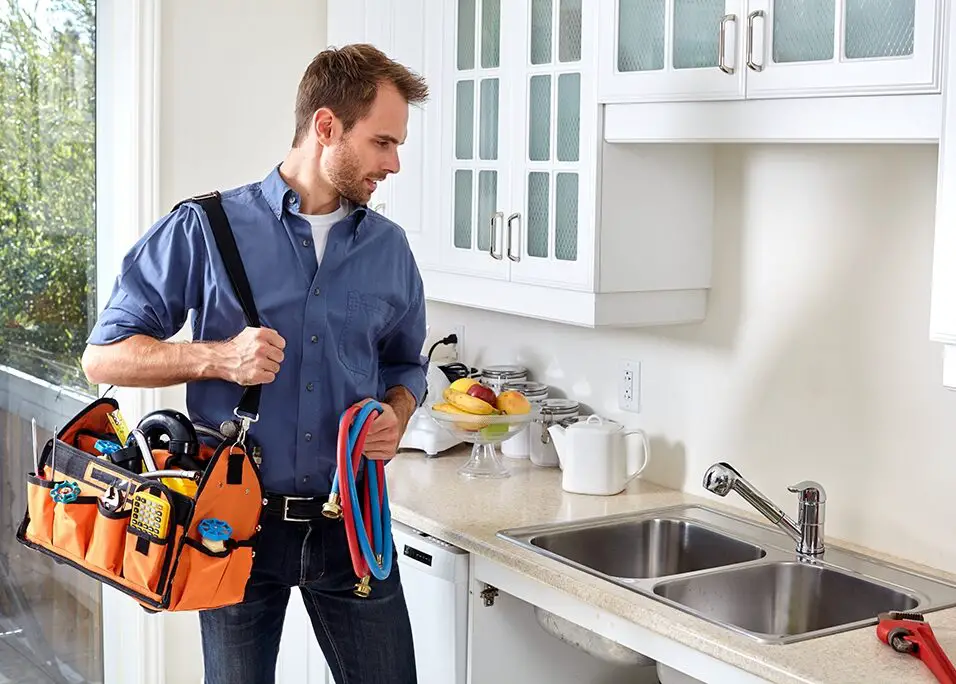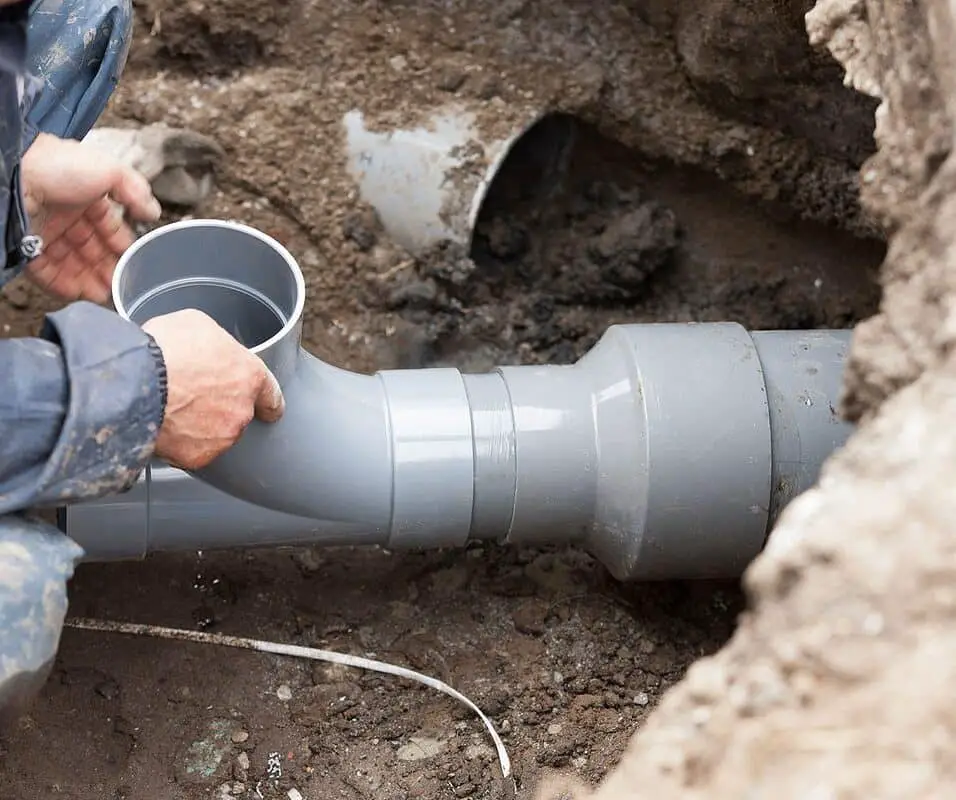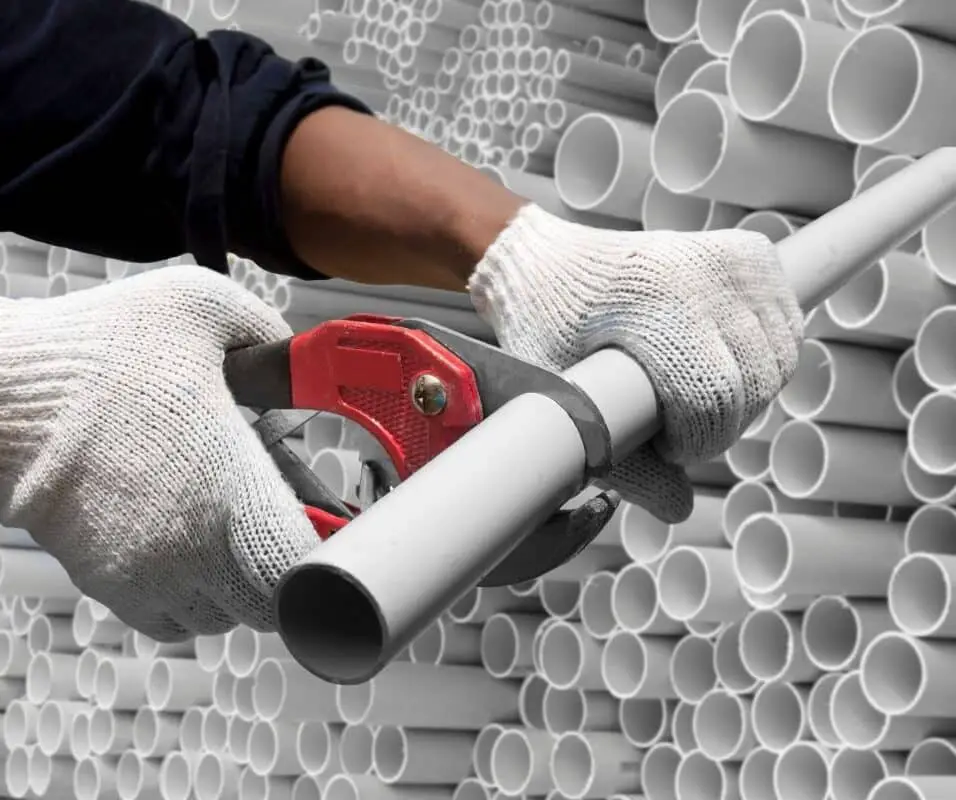How To Grow A Plumbing Business
Introduction
Growing a plumbing business requires more than just technical skills and expertise in the field. It demands effective management, strategic planning, and a keen understanding of the competitive market. As the demand for plumbing services continues to rise, it becomes crucial for plumbing business owners to employ strategies that can help them expand their operations, attract new clients, and increase profitability. Delve into marketing strategies, customer service techniques, operational efficiency, and team management practices that can contribute to the overall success and growth of your business.
One of the primary areas we will focus on is marketing. Effective marketing is essential for reaching a broader audience and establishing a strong brand presence. Digital marketing techniques, such as search engine optimization (SEO), social media marketing, and online advertising, which can help you attract potential customers and generate leads.
Additionally, we will address the significance of exceptional customer service. Satisfied customers are more likely to become loyal patrons and refer your services to others. Moreover, operational efficiency plays a vital role in scaling a invented plumbing business. Provide insights into optimizing workflows, utilizing technology and software solutions, and implementing effective project management practices.
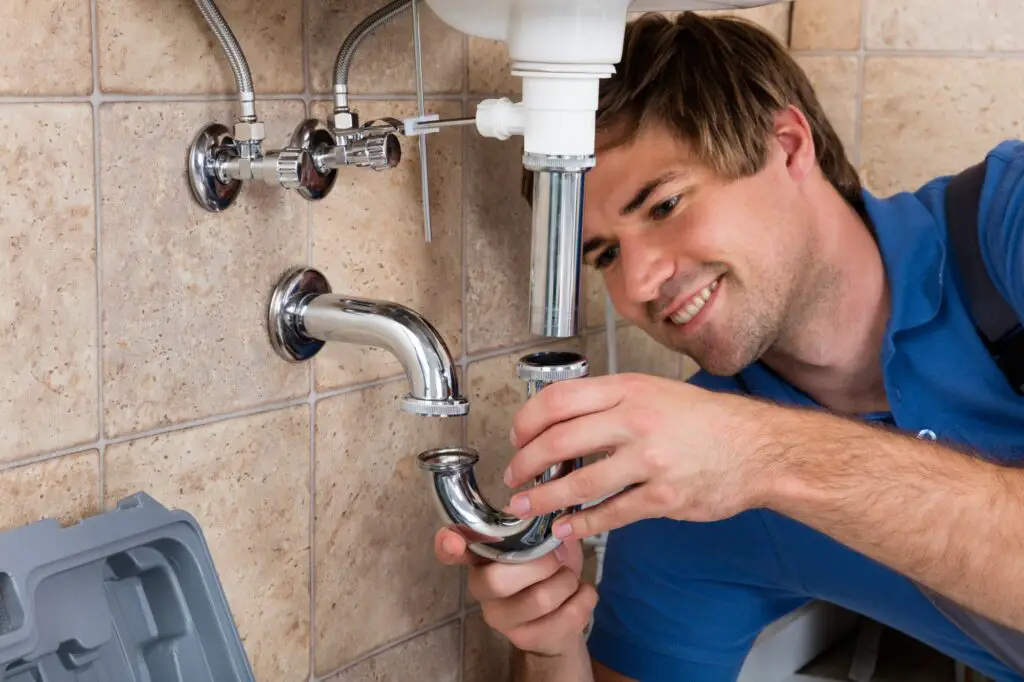
How Do I Make My Plumbing Business Successful?
Here Are Some Key Tips To Follow For Starting A Plumbing Business
- Know Your Niche.
- Get Training And Experience.
- Take Care Of The Legal Aspect.
- Have A Unique Business Card.
- Make A Business Plan.
- Have A Unique Logo.
- Create Your Business Website.
- Generate Leads And Convert Them To Sales.
Build a strong brand: Develop a professional and memorable brand that reflects the quality and reliability of your services. Invest in a well-designed logo, website, and marketing materials to establish a strong presence in the market.
Target your audience: Identify your target market and tailor your marketing efforts accordingly. Focus on reaching homeowners, property managers, and commercial clients who are in need of plumbing services. Utilize online marketing techniques such as search engine optimization (SEO), social media marketing, and pay-per-click advertising to reach a wider audience.
Provide exceptional customer service: Delivering excellent customer service is crucial for any successful business. Be responsive, reliable, and courteous in your interactions with clients. Aim to exceed their expectations and build long-term relationships based on trust and satisfaction.
Invest in employee training: Ensure your plumbing technicians are highly skilled and knowledgeable in their field. Provide regular training sessions to keep them updated on the latest industry trends, technologies, and best practices. Well-trained employees will not only provide better service but also contribute to the reputation and growth of your business.
Establish strategic partnerships: Collaborate with other professionals in related fields such as construction contractors, real estate agents, and property managers. These partnerships can lead to referrals and mutual growth opportunities.
How Do I Get More Customers From Plumbing?
12 Ways to Find New Customers for Your Plumbing Business
- 1 Focus on Great Customer Service.
- 2 Get Referrals.
- 3 Ask for Reviews.
- 4 Get Involved in Your Community.
- 5 Stay Active on Plumber Online Communities.
- 6 Connect with Customers through Social Media.
- 7 Have a Clear Website.
- 8 Get Listed on Directories.
Getting more customers for your plumbing business involves implementing effective marketing strategies and providing excellent service. Here are some ways to attract more customers:
Online presence: Establish a strong online presence through a professional website and active presence on social media platforms. Optimize your website for search engines to improve your visibility in online searches. Share informative content, engage with your audience, and showcase your expertise.
Local SEO: Focus on local search engine optimization to target customers in your area. Claim your Google My Business listing, optimize it with accurate contact information and business details, and encourage customers to leave reviews. This will help your business appear in local search results and increase your visibility.
Online directories: List your plumbing business on popular online directories such as Yelp, Angie’s List, and HomeAdvisor. These platforms are frequently used by customers searching for plumbing services, and having a presence there can increase your chances of being discovered.
Referral programs: Encourage your satisfied customers to refer your services to their friends, family, and acquaintances. Offer incentives such as discounts or rewards for successful referrals. Word-of-mouth recommendations can be a powerful tool for attracting new customers.
Networking: Attend local business networking events, join industry associations, and build relationships with professionals in related fields such as contractors, real estate agents, and property managers. Networking can lead to referrals and collaborations that can expand your customer base.
What Is A Good Profit Margin For A Plumbing Business?
Around 35 to 40 percent
Factors That Can Impact Profitability
Some industry organisations anticipate that profit margins for most plumbing projects should be around 35 to 40 percent. This is just an estimated amount. Each plumbing business is operated differently and may see more or less profit.
Determining a specific profit margin for a plumbing business can be challenging as it depends on various factors such as location, market conditions, competition, business size, and operational efficiency. However, a good profit margin range for a plumbing business is typically considered to be between 10% and 20%.
Profit margin is the percentage of revenue that remains as profit after deducting all expenses. To calculate the profit margin, divide the net profit by the total revenue and multiply by 100. For example, if a plumbing business has a net profit of $50,000 and total revenue of $300,000, the profit margin would be 16.7% ($50,000 / $300,000 * 100). The profit margin in the plumbing industry can vary due to factors such as overhead costs, labor expenses, material costs, and pricing strategies.
It’s important to strike a balance between competitive pricing and maintaining a healthy profit margin. To improve profit margins, plumbing businesses can focus on optimizing operations and reducing costs. This can include efficient scheduling of jobs, minimizing material waste, negotiating favorable supplier contracts, and ensuring proper pricing strategies that consider overhead expenses, labor costs, and desired profit levels.
What Is The Best Business Type For A Plumber?
Starting a limited liability company (LLC) for your plumbing business can provide several benefits. Most importantly, an LLC structure offers limited liability to its owners, which can protect their personal assets from lawsuits and creditors.
The best business type for a plumber typically depends on various factors such as the size of the operation, desired level of control, liability considerations, and tax implications. Here are three common business types that are often suitable for plumbers:
Sole Proprietorship: This is the simplest and most common business structure for plumbers starting out on their own. As a sole proprietor, you have complete control over your business and its finances. However, keep in mind that you are personally liable for any debts or legal issues, and your personal assets may be at risk. Tax-wise, a sole proprietorship allows for pass-through taxation, where business profits and losses are reported on your personal tax return.
Limited Liability Company (LLC): An LLC offers limited liability protection for the owner(s) while maintaining flexibility and simplicity in operations. It provides a level of personal asset protection, shielding your personal assets from business liabilities. Additionally, an LLC allows for pass-through taxation, similar to a sole proprietorship. Forming an LLC involves filing articles of organization with the state and adhering to any ongoing compliance requirements.
Corporation: Establishing a corporation, such as a C Corporation or an S Corporation, provides more extensive liability protection than the previous business types. Shareholders’ personal assets are typically protected from business debts and liabilities. However, corporations involve more administrative complexity and are subject to more stringent compliance requirements. They also have their own tax implications, with C Corporations being subject to double taxation, while S Corporations allow for pass-through taxation.

How Do I Write A Plumbing Business Proposal?
An effective plumbing proposal will contain reasoning explaining why a certain company is perfect for the job, and why they should be hired. It will also contain information on a price quote, which is usually written at the end of the proposal. A breakdown of the cost should be given.
Client’s Needs: Identify and understand the specific needs of the client. Discuss their plumbing requirements, challenges, and desired outcomes. This section demonstrates that you have carefully considered their unique situation.
Proposed Solution: Outline your proposed solution to meet the client’s needs. Describe the plumbing services you will provide, the materials and equipment you will use, and the timeline for completing the project. Be clear and specific about how your solution will address the client’s requirements.
Experience and Expertise: Highlight your experience and expertise in the plumbing industry. Provide details about your qualifications, certifications, and any relevant past projects or satisfied clients. This builds credibility and instills confidence in your ability to deliver high-quality work.
Pricing and Terms: Clearly outline the pricing structure for your services. Break down costs, including materials, labor, and any additional charges. Specify payment terms, such as deposit requirements or milestones. Be transparent about what is included in the proposed pricing and any potential extra charges.
Testimonials or References: Include testimonials or references from satisfied clients to demonstrate the positive experiences others have had with your plumbing services. This helps build trust and reassures the client of your reliability.
What Are The Challenges Of Plumbing Business?
Common Problems When Managing A Plumbing Business
- Difficulty in customer retention.
- Problems with pay systems.
- Non-existent or poor target marketing.
The plumbing business, like any other industry, faces several challenges that can impact its operations and profitability. Here are some common challenges faced by plumbing businesses:
Intense Competition: The plumbing industry is highly competitive, with numerous established companies and new entrants vying for the same customers. Standing out and differentiating your business can be a challenge, particularly when price becomes the primary factor for customers.
Seasonal Fluctuations: Plumbing businesses often experience seasonal fluctuations in demand. The demand for plumbing services tends to be higher during the colder months due to issues like frozen pipes, while the demand may decrease during warmer seasons. Managing workload and cash flow during slow periods can be a challenge.
Skilled Labor Shortage: Finding and retaining skilled plumbers can be challenging due to a shortage of qualified professionals in the industry. As experienced plumbers retire, there is a gap in the availability of skilled labor. Recruiting and training new employees can be time-consuming and costly.
Evolving Technology: Plumbing technology and equipment constantly evolve, requiring plumbing businesses to stay updated to remain competitive. Adopting new technologies and tools can be costly and may require additional training for employees.
Rising Material Costs: Fluctuating material costs, including pipes, fixtures, and other plumbing supplies, can affect profit margins. Rising material costs can squeeze profitability, making it crucial for plumbing businesses to carefully manage their pricing strategies and supplier relationships.
Regulatory Compliance: Plumbing businesses must comply with various regulations and building codes, which can vary by location. Keeping up with changes in regulations and ensuring compliance can be a complex and time-consuming process.
How Long Does It Take To Grow A Plumbing Business?
The timeline for growing a plumbing business can vary depending on various factors such as the local market, competition, marketing efforts, and the quality of service provided. Growth is typically a gradual process, and it may take several months or even years to see significant expansion. Consistency, persistence, and effective business strategies are key to achieving sustainable growth.
Establishing a Solid Foundation: In the initial stages, it is important to focus on setting up the business properly, obtaining necessary licenses and permits, building a professional image, and establishing a customer base. This foundation can take anywhere from several months to a couple of years.
Building a Reputation: Reputation plays a crucial role in the growth of a plumbing business. It takes time to earn trust and develop a positive reputation in the industry and among customers. Providing high-quality services, delivering excellent customer service, and consistently meeting or exceeding client expectations are key to building a strong reputation.
Expanding Customer Base: Growing a plumbing business typically involves expanding the customer base. This can be achieved through effective marketing strategies, including online and offline advertising, referrals, networking, and establishing partnerships with other professionals in related fields. Acquiring new customers and building lasting relationships can take several years.
Scaling Operations: As the customer base grows, scaling operations becomes important to meet the increasing demand. Hiring and training additional staff, investing in equipment and technology, and streamlining processes are necessary steps to handle more projects efficiently. The timeline for scaling operations varies based on the growth rate and available resources.
How Can I Grow My Plumbing Business?
Growing a plumbing business requires a combination of effective marketing, providing excellent customer service, and strategic planning. Here are some key strategies to consider:
Invest in marketing: Develop a strong online presence through a well-designed website and social media accounts. Utilize search engine optimization (SEO) techniques to improve your visibility. Consider local advertising, such as radio or newspaper ads, as well as targeted online advertising.
Build customer relationships: Focus on providing exceptional customer service to build a loyal customer base. Respond promptly to inquiries and requests, communicate clearly, and ensure your technicians are professional and courteous.
Ask for referrals: Satisfied customers can be a valuable source of new business. Encourage them to refer your services to their friends, family, and colleagues. Consider implementing a referral program to incentivize referrals.
Offer additional services: Expand your range of services to meet the needs of your customers. This could include offering emergency services, drain cleaning, water heater installation, or bathroom remodeling. The more services you can provide, the more opportunities you have for revenue growth.
Establish partnerships: Collaborate with other local businesses, such as real estate agents, construction companies, or property managers. These partnerships can lead to mutually beneficial referrals and help expand your customer base.
Focus on online reviews: Positive online reviews and ratings are crucial for attracting new customers. Encourage satisfied customers to leave reviews on platforms like Google, Yelp, or Angie’s List. Respond to both positive and negative reviews promptly and professionally.
Invest in employee training: Continuously invest in training programs for your technicians to enhance their skills and knowledge. Well-trained employees can provide better service, increasing customer satisfaction and generating positive word-of-mouth.

Conclusion
Growing a plumbing business requires a combination of strategic planning, effective marketing, exceptional customer service, operational efficiency, and strong team management. By implementing the various strategies discussed in this guide, you can position your business for long-term growth and success in the competitive plumbing industry.
A robust marketing strategy is essential for attracting new customers and expanding your client base. Leveraging digital marketing techniques, such as SEO, social media marketing, and online advertising, can significantly enhance your visibility and generate valuable leads. Furthermore, prioritizing exceptional customer service is key to building a loyal customer base and generating positive word-of-mouth referrals. Timely responses, clear communication, and a commitment to professionalism will help you establish a reputation for quality service.
A skilled and motivated team is the backbone of any successful plumbing business. Recruiting and retaining talented plumbers, providing them with training and growth opportunities, and fostering a positive work environment will contribute to the overall success and growth of your business. Growing a plumbing business requires a multifaceted approach that encompasses marketing, customer service, operations, and team management. By implementing the strategies outlined in this guide and adapting to the evolving needs of the industry, you can position your plumbing business for sustained growth, profitability, and long-term success. Embrace these strategies, stay adaptable, and continue to deliver exceptional service, and you will thrive in the dynamic plumbing industry.





